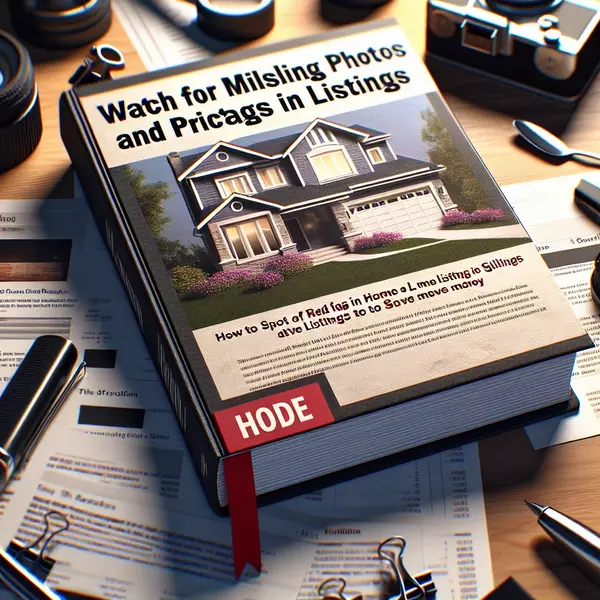What Do I Need to Disclose When Selling My Home in Winnipeg?
What Do I Need to Disclose When Selling My Home in Winnipeg?
Selling a home in Winnipeg can be an exciting, but also overwhelming experience. As a seller, you likely want to be sure that everything goes smoothly. It's important to know what you need to disclose when you’re putting your home on the market. Understanding this can make the selling process easier and help you avoid any surprises down the road.
For professionals looking to upsize, downsize, or buy their first home, knowing about possible disclosures is crucial. This is especially true if you’re investing hard-earned money into a new home. So, what are the key things you need to know about disclosures in Winnipeg?
What Is a Seller Disclosure?
A seller disclosure is a document that sellers fill out to share important information about their home with potential buyers. This includes issues that buyers need to know about before making a purchase. These disclosures help ensure that everyone has the information they need to make an informed decision.
Problem: What Must Be Disclosed in Manitoba?
The main problem for home sellers is understanding what needs to be disclosed. In Manitoba, like other places, sellers must be honest and transparent about certain details. Failing to do this could lead to problems later on, such as legal disputes or unexpected expenses for the buyer.
Here are some key points that sellers should disclose when selling a home in Winnipeg:
-
Major Repairs or Damage: If there have been major repairs or damage to the home, like roof repairs or water damage, sellers need to disclose this. Even if the repairs have been completed, it’s still better to inform potential buyers about them.
-
Known Issues with the Property: Any known issues, such as a malfunctioning HVAC system, leaky basement, or pest problems, should be disclosed.
-
Renovations and Permits: If there have been renovations, sellers should disclose whether the necessary permits were obtained from the city. Buyers appreciate knowing that renovations were done to code.
-
Environmental Concerns: If the property is in a flood zone or there are environmental concerns like contaminated soil or radon, this should also be communicated to potential buyers.
Agitate: Why Disclosures Matter for Buyers and Sellers
For those looking to upsize, downsize, or buy their first home, knowing what disclosures are required is important. Not only does it affect the purchase decision, but it also impacts how smooth the transaction will be for both parties.
Here's why transparency is so crucial:
Buyers’ Perspective
-
Making Informed Decisions: Knowing about potential problems helps buyers decide if they're willing to deal with the issues or if they should look elsewhere. This is especially important for professionals who are busy and don’t have time to manage home repairs.
-
Financial Planning: Buyers need to prepare their finances, especially if there will be immediate costs upon purchasing the home. Understanding these costs up front can help avoid financial strain.
Sellers’ Perspective
-
Avoiding Legal Issues: Sellers who disclose known problems can reduce the risk of facing legal issues after the sale. This helps keep the process smooth and stress-free.
-
Trust and Reputation: Being upfront with potential buyers builds trust. A good reputation can also help if you ever need to sell another home in the future.
By not stressing these points, sellers might face hiccups, which could be avoided through clear communication.
Solution: How to Make Sure You're Disclosing Properly
Proper disclosure is not just required; it's a good practice. Here are some steps to help sellers disclose effectively:
1. Get the Right Forms
Ensure that you're using the correct seller disclosure forms. These can often be obtained from a realtor or a legal advisor familiar with real estate transactions. The form typically includes questions about the home’s condition and any work that’s been done on it.
2. Be Thorough and Honest
Carefully fill out the form. If you know of any issues with your home, be sure to include them. Don’t guess or omit information thinking it won’t matter. If you’re unsure whether something qualifies, it’s usually better to disclose it.
3. Gather Documentation
If possible, keep documentation of any repairs or improvements. This includes permits, receipts, or warranties that could help reassure potential buyers that problems were fixed properly.
4. Consult Professionals
If unsure, consult a real estate agent or lawyer who knows Manitoba’s requirements. They can provide valuable advice and help ensure the disclosure process is handled correctly.
Conclusion: A Smooth Transaction for Both Buyers and Sellers
In Winnipeg’s real estate market, understanding seller disclosures is vital for both buyers and sellers. It builds trust, ensures transparency, and provides peace of mind for all parties involved.
By being clear about your home’s condition, you not only abide by Manitoba’s laws but also make the selling process much smoother. Whether you’re a professional looking to move into a larger home, downsize, or buy your first property, being informed about these disclosures ensures a sound investment decision.
Approach the process thoughtfully, and it will help make your home sale a successful and happy experience for everyone involved.
Categories
Recent Posts











